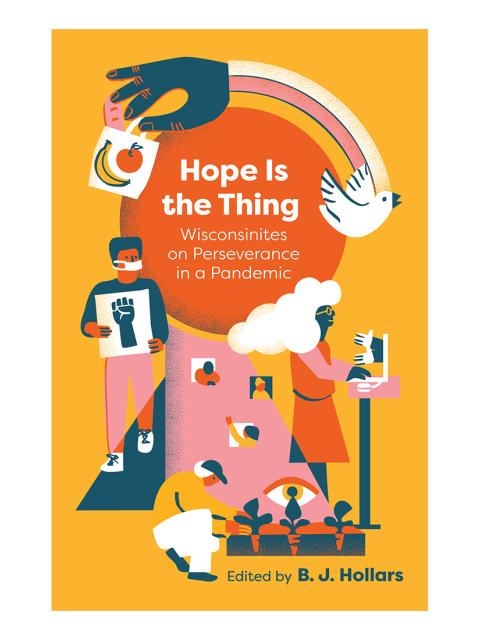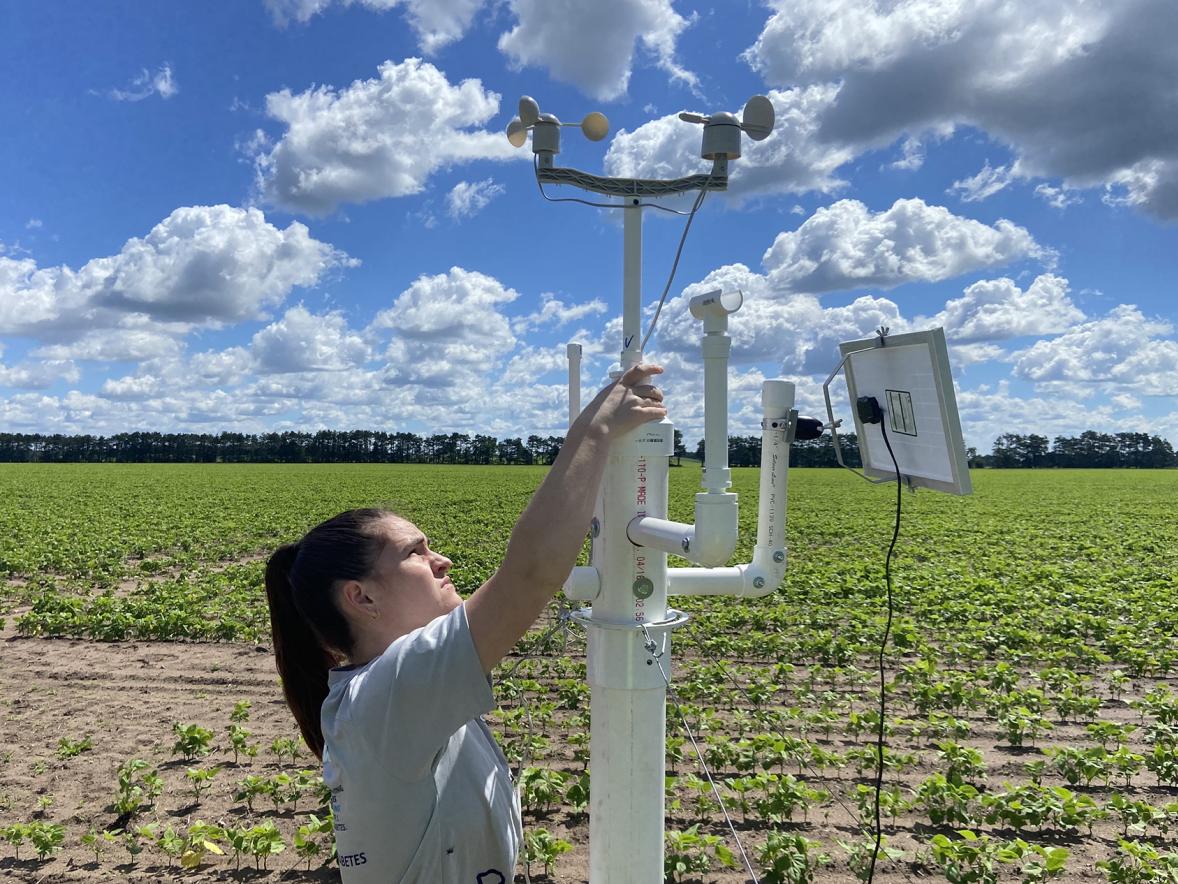For Jamie Vue, hope is looking to the past and remembering generations who had survived hard times.
Vue, a University of Wisconsin-Stout Student Support Services writing specialist adviser, was one of two UW-Stout staff who had their essays on the COVID-19 pandemic published in the new book “Hope is the Thing: Wisconsinites on Perseverance in a Pandemic,” edited by B.J. Hollars, author and executive director of the Chippewa Valley Writers Guild.
Lopa Basu, a professor in the English, philosophy and communication studies department, published the essay “Hope is the Perfect Round Roti.”
Hollars started the collaborative writing project to bridge the emotional challenges created by physical distancing. Drawing upon Emily Dickinson’s famous poem “Hope’s the thing with feathers,” Hollars called on Wisconsinites to reflect on their own glimpses of home in the era of COVID-19.

Vue began writing her essay at the height of the pandemic in March 2020.
“My grandmother had lived through hard times and survived it,” Vue said. “Generations later she is still a beacon of hope and strength in our family. If she could survive a war, I knew we could get through anything together. I also reflected on my childhood, which grounded me during the uncertainty of the pandemic. Coming from a modest upbringing, I knew that we could get through it as long as we had one another in the same way we did as children.”
At first, Basu was not able to think of anything hopeful about the pandemic. But then the idea of baking bread or making Indian roti as an act of everyday hope emerged.
“My essay is about my own efforts at making Indian flatbreads,” Basu said. “I connected this to bread shortages as well the plight of migrant workers in India who were forced to walk back to villages when the lockdown began, sometimes without food or water.

“For me bread is a metaphor of life, normalcy and civilization,” Basu said. “Bread is what marked the human transition from nomadism to settled agriculture. A grocery store emptied of bread signified a civilization in crisis.”
Since the lockdown began in 2020, Basu’s family has not been able to visit her family in India. “For a while, I thought, after we all get vaccinated, we will be reunited,” Basu said. “But my parents and in-laws all got infected with the Delta variant in May. My mother-in-law passed away on May 2 at home. She could not be admitted to a hospital because New Delhi was overwhelmed with COVID. My father died on May 13 in Kolkata alone in a COVID ICU. I have not been able to return to see my mother. It has been devastating.”
Vue said she also wrote about the political tensions around wearing masks, particularly about protecting older citizens from the virus.
“Every time I return to the essays in the book, I am amazed at the perseverance and resiliency of people,” Vue said. “That is precisely why it was so important to write the essay, to record our feelings then, and to see how it has shaped all of us as we come down from the pandemic.”
Recently, Vue received a message from a colleague who had read her essay and they shared their pandemic experiences.
“It reminded me of the power in storytelling,” Vue said. “Hope will always inspire more hope in the world.”

Vue will read from her essay at 7:30 p.m. on Tuesday, Nov. 9, at the Heyde Center for the Arts, 3 South High St., Chippewa Falls, with other essay writers.
Basu will read from her essay at 7 p.m. on Thursday, Oct. 7, at the Volume One Local Store, 205 N. Dewey St., Eau Claire, with other essay writers.
The UW-Stout Literature Committee is holding a virtual reading on Zoom featuring UW-Stout faculty and staff at 7 p.m. on Thursday, Nov. 18. Vue and Basu will be reading.
A special part of the book for Basu is the inclusion of her son, Aviroop Basu, a middle school student, who called upon his skill as a violinist for his poem “Hope is Somewhere in the Treble Clef.”
“The book is very special because I share the table of contents with my son,” Basu said. “It is lovely to be in this collection and to be published with so many amazing voices.”
Basu’s essay was one of eight chosen to be featured in Wisconsin Magazine of History’s autumn 2021 issue.
The book is available from the Wisconsin Historical Society at shop.wisconsinhistory.org. The cost is $20. It also is available on Amazon and Google books.







